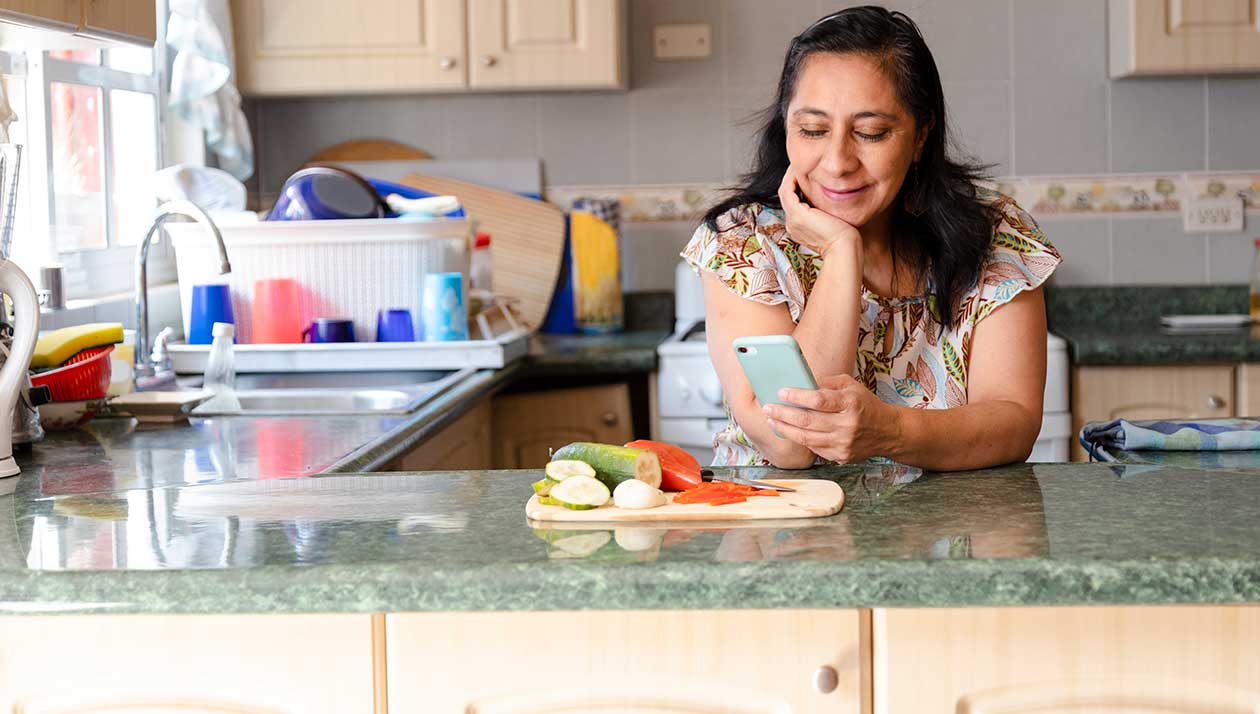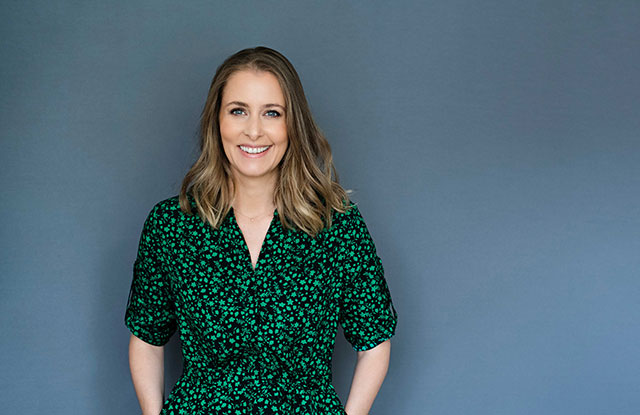
Money talks: How to say ‘no’
Can’t afford it? Sometimes it’s hard saying no to big events or socialising, so we asked an expert psychologist for tips on how to have those tricky chats.
Published:30 June 2023
If you’re cutting back because of the cost of living squeeze or just trying to budget a bit more carefully, it can be tough saying no to invites, presents and treats. We asked psychologist and author of Tiny Traumas, Dr Meg Arroll to share her expert advice on how best to have those discussions.
Image credit: Jenny Smith

Dr Meg's basics
- Talking about money can still feel like a bit of a taboo topic, so it’s OK to admit that you find it difficult – chances are, your friends and family will appreciate your honesty, and that’s always a solid foundation for a tricky conversation!Talking about money can still feel like a bit of a taboo topic, so it’s OK to admit that you find it difficult – chances are, your friends and family will appreciate your honesty, and that’s always a solid foundation for a tricky conversation!
- When talking about money, place yourself at the centre of the conversation using first person ‘I’ phrases such as “I’m worried about my spending”, rather than “that’s too much money” to avoid any sense of blame or defensiveness.When talking about money, place yourself at the centre of the conversation using first person ‘I’ phrases such as “I’m worried about my spending”, rather than “that’s too much money” to avoid any sense of blame or defensiveness.
- Remember, it’s completely OK to say ‘no’. ‘No’ is a very important form of self-care, so start to practise this boundary to become more comfortable with putting yourself and your finances first. If you find the word ‘no’ difficult, there are other ways of communicating this, but the important thing is to be crystal clear with your response so there’s no confusion.Remember, it’s completely OK to say ‘no’. ‘No’ is a very important form of self-care, so start to practise this boundary to become more comfortable with putting yourself and your finances first. If you find the word ‘no’ difficult, there are other ways of communicating this, but the important thing is to be crystal clear with your response so there’s no confusion.
- When saying ‘no’ to an invite, show appreciation for the thought but stick to your decision. For example, “It’s so kind that you thought of me, but I can't.” You don’t need to justify your response here, however, so don’t feel the need to make excuses.When saying ‘no’ to an invite, show appreciation for the thought but stick to your decision. For example, “It’s so kind that you thought of me, but I can't.” You don’t need to justify your response here, however, so don’t feel the need to make excuses.
- If you do want to explain that you simply can’t afford something, keep it short and to the point. There’s no need to explain your entire financial situation: a simple “I’m afraid I just can’t afford it at this time” is enough.If you do want to explain that you simply can’t afford something, keep it short and to the point. There’s no need to explain your entire financial situation: a simple “I’m afraid I just can’t afford it at this time” is enough.
- Finally, don’t feel pressured to make a decision on the spot. Using ‘maybe’ gives you time and space to consider your priorities without closing the door – but only use ‘maybe’ in situations where you need a bit of time to consider an activity or purchase. If you already know you don’t want to do it or buy it, go back to ‘no’.Finally, don’t feel pressured to make a decision on the spot. Using ‘maybe’ gives you time and space to consider your priorities without closing the door – but only use ‘maybe’ in situations where you need a bit of time to consider an activity or purchase. If you already know you don’t want to do it or buy it, go back to ‘no’.
Big events
Hen-dos, stag-dos and weddings are happy occasions, but costly. If you’re invited to an event and there isn’t the option to attend some of it, there’s no harm in suggesting it. Politely thank them for the invite, but explain you can only come to some elements. This shows you are keen to be present without committing beyond your budget.
If you’re organising a hen-do or wedding then open communication is key’, says Dr Meg. ‘You could start with a brainstorm with input from everyone. You’ll get a good sense of what people can afford from this without putting hens or guests under pressure to spend money they don’t have. Also, let guests RSVP discreetly – private messaging is always kinder than asking for responses on a group chat.
Kids
Treats, toys and days out – it’s easy to overspend when you have kids or grandchildren, but it’s often harder to say ‘no’ when they may not fully understand why. It’s often a good idea to start by explaining the cost of living squeeze and how everyone has less money to spend on things they want. Dr Meg says, ‘Remember, though, that kids value attention over ‘stuff’ and time spent is much more valuable than money.
Instead of saying ‘no’ altogether, ask them to pick one thing they really want to do and decide together to save up for it. Perhaps it’s a day out or a takeaway night in – often the saving is just as exciting as the experience itself. ‘It can also help kids develop a good relationship with money,’ explains Dr Meg. ‘Make it visual with a ‘treat jar’ by getting the kids to draw their own label for the piggy bank. Then, when it’s time to reward a job well-done (e.g. homework, small tasks around the house, kind behaviour, etc.), let each child place tokens or coins in the jar themselves. The sense of pride and ownership when working towards a reward is huge and these feelings will outlast any toy.
Birthdays and Christmas
You may find that you just can’t afford to buy gifts, or at least big gifts, this year and again, the key here is to be honest from the start and plan ahead. Could you have an agreement with family and friends where you buy smaller presents for each other or none at all? If you’re honest and explain that you just can’t afford it at the moment, people will understand – they may even be relieved! Cutting your to-buy list down now will save stress and cash further down the line.
If you think about the best birthdays or Christmases you’ve ever had, they probably involved memories over presents. ‘We can also actively use these memories as part of our mental health toolkit in the form of ‘anticipatory nostalgia’, explains Dr Meg. ‘When everyone is together, take a moment to observe the sights, sounds, smells and feel of the event. Research shows that when times are tough, these precious memories help get us to cope better'.
Socialising
You value your friendships, but you know that round of drinks at the pub will tip you into the red. Sound familiar? ‘Many of us over-commit and that’s totally understandable,’ says Dr Meg, ‘but it’s important to be realistic about what you can comfortably afford. If you find it really hard to say ‘no’, you could try something like, “I’m afraid not this time” and, as always, express gratitude for the invite.
‘Next time your friends invite you for drinks or a meal that you haven’t got the money for, instead of declining suggest a free alternative,’ says Dr Meg. ‘Have you heard of ecopsychology? It’s a technique that I practise with clients and is simply going for a walk with someone and having a good conversation. Research shows that ecopsychology reduces stress, boosts mood and the physical exercise itself also buffers against low mood and depression. We tend to talk more freely and open up when outdoors, which is a great way to bond with friends.’
Important information
Facts and figures were checked for accuracy at the time of publication and curated using a range of sources. While we hope that you find this page useful, please be aware that this is information only and not financial advice.